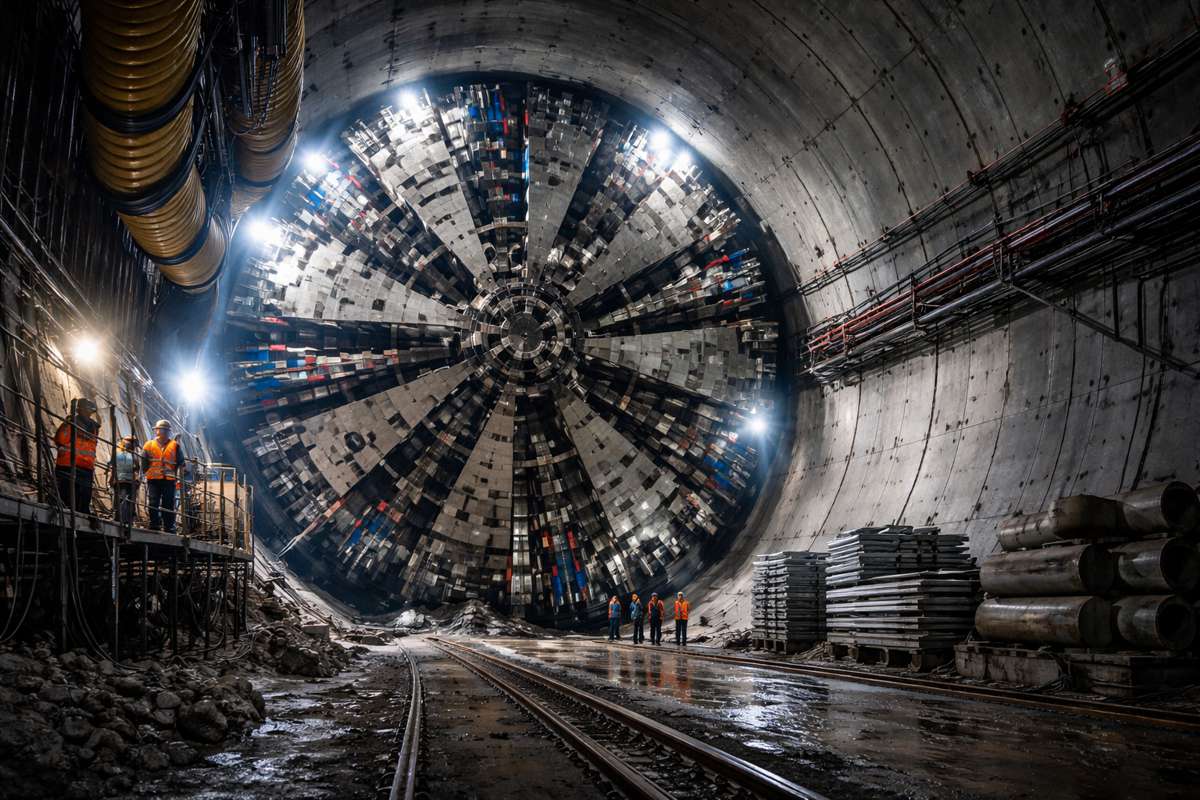LSBUD report 17 percent increase in UK Highways Projects in 2019
There was a 17 percent jump in the amount of digging work on the UK’s highways last year, according to Digging Up Britain 2020.
The report by LSBUD, which provides a free to use online search facility for underground pipes and cables, reveals that there were 421,452 searches through its portal relating to highways projects in 2019. This is the highest level ever recorded and means road projects now account for 15% of all the digging taking place in the UK.
Construction companies, contractors, utilities, local authorities, agricultural businesses, and the general public all use the LSBUD portal to check what utilities are under the ground before they dig – to help prevent assets such as pipes and cables being struck. A record 2,832,027 enquiries were registered on the collaborative portal in 2019, representing 71 percent of all digging work taking place in the UK. As such it provides a powerful barometer for the type of excavation work being undertaken.
In the case of the highways sectors, the Digging Up Britain 2020 report shows there were 139, 231 street furniture projects and 70,336 searches relating to resurfacing, an 11 percent increase. Driveway projects increased by 29 percent to 1,166, while pure road installation projects jumped by 69 percent with 125 searches. Other road activities accounted for 10,140 projects, there were 1,958 searches relating to traffic calming, gulley works totalled 12,902 and works on highways reached 5,518. The main decline was in linear projects cross country; these accounted for 7,689 searches, a decrease of 27 percent on the year before.
Richard Broome, Managing Director of LSBUD, comments: “It’s interesting to see the volume and mix of excavation work on the UK’s roads but what’s gratifying is that we have reached a ‘tipping point’ in terms of safe digging – which is good news both for the UK’s underground utility networks, and those who dig near them. The sheer volume of data we’re now handling suggests asset searching on the LSBUD portal has rapidly become second nature for people. After all, a search enquiry was placed every 3.7 seconds during the typical working day! It’s now a standard step in the vast majority of jobs, including a growing number of road and highways-related projects.”
The Report suggests that much of the increase in highways-related activity can be attributed to the Government investing more than £100 million to fund roads across the UK. Over £25 billion is slated to be invested in the strategic road network between 2020 and 2025.
Digging Up Britain 2020 not only analyses the volumes but also the nature of the digging work taking place. It reports that ‘emergency projects’ increased by 59 percent on the previous year and 197 percent on two years ago with 316,922 searches deemed as urgent in 2019.
This trend could present a challenge to those managing urgent road-related projects if they are dealing with water, telecoms, gas, and electricity companies who are not yet on the collaborative LSBUD portal. Whilst the portal delivers search results in minutes, it can take utility businesses who are handling enquiries themselves up to 28 days to provide information about their networks. The increase in ‘emergency’ requests will put huge pressure on these timescales.
Whilst highway projects accounted for 15 percent of the total amount of digging work, the majority is done on behalf of the telecoms sector; its contractors and operators completed 911,455 searches, 32 percent of the total in 2019. The water industry followed with 592,126 searches, accounting for 21 percent.
Richard Broome again: “With the vast bulk of the UK’s digging activity being preceded by a search through our portal, we provide a fascinating insight not only into the type of work which is taking place and where it’s happening but also who’s doing it. What we can say for this year is that many more projects involving the UK’s roads now involve a detailed search before digging commences, which is good for the projects, and the safety of their workers, and the communities where they’re operating. After all, no firm wants to be responsible for causing flooding or cutting off the broadband – let alone hitting a gas pipe or an electricity cable! This is why we urge everyone involved in road and highway projects to keep the momentum up and check for underground assets – every time.”





























